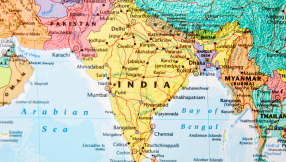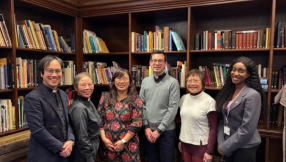
A married couple in Sudan have been charged with adultery and apostasy after choosing to continue as a married couple.
The latter charge is being pressed despite no longer being a criminal offense under Sudanese law.
If found guilty of adultery, the couple could face a sentence of 100 lashes and a year in internal exile.
Nada Hamad Koko and her husband, Hamouda Teya Kaffi, were originally due to appear in Al-Baqir Court, Gezira state, on 15 September for a hearing on charges of adultery when they learned of a second criminal complaint, says John Samuel, Open Doors' legal expert for sub-Saharan Africa.
The couple were both Muslim when they married in 2016. When, two years later, Hamouda converted to Christianity, Nada's family forced her to have their marriage annulled by an Islamic, or Sharia, court.
In Sudan it is unlawful for a Muslim woman to marry a non-Muslim man, and at the time, leaving Islam was punishable with the death penalty.
Under immense outside pressure, they divorced, and Nada returned to live with her family with the couple's two children.
After apostasy – leaving one's faith to take up another - was decriminalised in 2020, the couple reunited in 2021 and Nada announced she, too, had become a Christian.
Nada's family reported them to the authorities and they were arrested on charges of adultery, because the Sharia court had declared them divorced, and the prosecutor regarded Nada's conversion as invalid.
"The psychological pressure on Nada and Hamouda is high," says John Samuel.
"This is an example of the challenges Christians from a Muslim background still face, both socially and legally in Sudan.
"Judges open cases to intimidate and pressurize converts to return to Islam and, even if charges are dropped, the accused become easily identifiable within their community and they are subjected to greater threat and danger."
Last month a court dismissed an apostasy case against four Christian converts from Darfur because of the fact that leaving Islam formally is no longer a criminal offence in Sudan.
In recent months, fear among Sudan's Christians has been growing that their country is sliding back into the control of Islamists. Christians have been systematically persecuted for decades.
Under former President al-Bashir, religious police and armed Islamic militias were regularly persecuting Christians. A transition to civilian rule began in 2019, after 30 years of military dictatorship and there were signs that life for the country's Christian population (nearly 2 million, 4.4% of the population) was improving.
However, a coup in October 2021 seems to have reversed some of the gains. Since then Sudan's military have started to give influential positions to former members of the National Congress Party and allies of al-Bashir.
Under the NCP, with al-Bashir at the helm, a strict interpretation of Sharia had been introduced and institutionalised.













